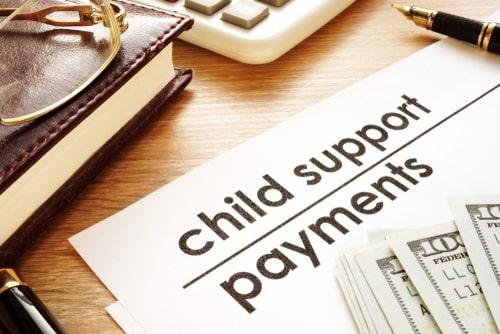Will the Court Deviate from the Child Support Guidelines?
 Any parents who are going through a divorce in Oakbrook Terrace, Illinois, and share minor children from their marriage should also be thinking about child custody and child support under the Illinois Marriage and Dissolution of Marriage Act (IMDMA). You might already know that, in terms of child support, Illinois follows an “income shares” model for calculating child support. With this model, the court uses a general formula to determine the total child support obligation for both parents, which is then shared based on their individual incomes and other relevant factors. Yet there are a variety of reasons that one or both parents might want the court to deviate from the existing Illinois Child Support Guidelines, and you might be wondering if the court could deviate from the guidelines in your case.
Any parents who are going through a divorce in Oakbrook Terrace, Illinois, and share minor children from their marriage should also be thinking about child custody and child support under the Illinois Marriage and Dissolution of Marriage Act (IMDMA). You might already know that, in terms of child support, Illinois follows an “income shares” model for calculating child support. With this model, the court uses a general formula to determine the total child support obligation for both parents, which is then shared based on their individual incomes and other relevant factors. Yet there are a variety of reasons that one or both parents might want the court to deviate from the existing Illinois Child Support Guidelines, and you might be wondering if the court could deviate from the guidelines in your case.
While there are only limited circumstances in which the court is likely to deviate from guidelines in determining the child support obligation as part of a divorce, our Oakbrook Terrace child support attorneys can discuss the likelihood of a deviation occurring in your particular case.
How the Income Shares Child Support Model Works
In order to understand the kinds of situations in which a court might deviate from existing child support guidelines, it is important to understand how the income shares child support model works.
Under the income shares model, the court will determine each parent’s adjusted net income, and then it will combine those adjusted net incomes to obtain a total adjusted net income. Based on that total amount, the court will determine a monthly child support obligation by inputting the combined adjusted net income into the Illinois Child Support Guidelines. To be clear, the monthly support obligation is streamlined across cases based on the parents’ combined total income and the number of children who need support.
Court Can Deviate from Child Support Guidelines in Limited Circumstances
According to the IMDMA, a divorce court generally must apply the guidelines in determining the parents’ shared child support obligation. However, the IMDMA does state that, in situations where applying the guidelines “would be inequitable, unjust, or inappropriate,” the court can deviate from the guidelines by awarding more child support or, in very rare cases, less child support. The IMDMA specifically identifies the following circumstances as ones in which a deviation from the guidelines might be appropriate:
- The child has extraordinary medical expenses that are necessary to save the child’s life or to preserve the child’s health.
- The child has special medical, physical, or developmental needs that require additional financial support for the child’s well-being.
- The best interests of the child, based on the particular facts of the case, suggest that applying the guidelines would be inappropriate.
When would an application of the guidelines be inappropriate? If the parents’ combined incomes are so high that the guidelines do not suggest a monthly support obligation, the court may deviate from the guidelines. Oppositely, if the parents have a very low combined income (typically less than a gross combined monthly income of $325.00), the court can deviate. If the court does deviate from the guidelines, it must provide its reason for doing so in writing.
Seek Advice from a DuPage County Family Law Attorney
If you have questions about child custody or child support in your divorce, our dedicated DuPage County child support lawyers can assist you. Our firm is committed to serving the Muslim community in Oakbrook Terrace and throughout DuPage County, and we can talk with you today about your concerns. Contact Farooqi & Husain Law Office online or by phone at 630-909-9114.
Source:
https://www.ilga.gov/legislation/ilcs/ilcs5.asp?ActID=2086&ChapterID=59


 630-909-9114
630-909-9114




